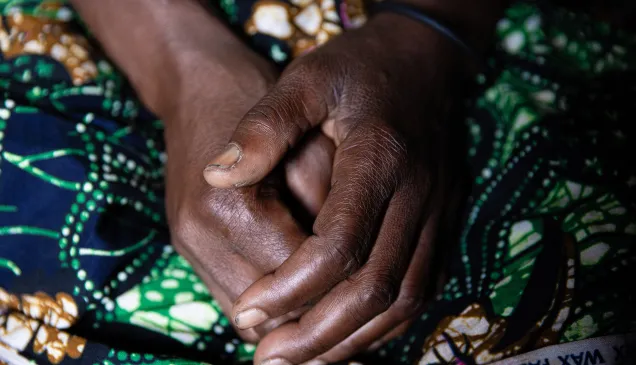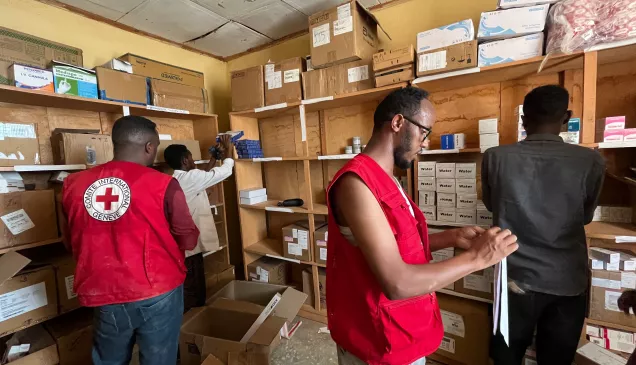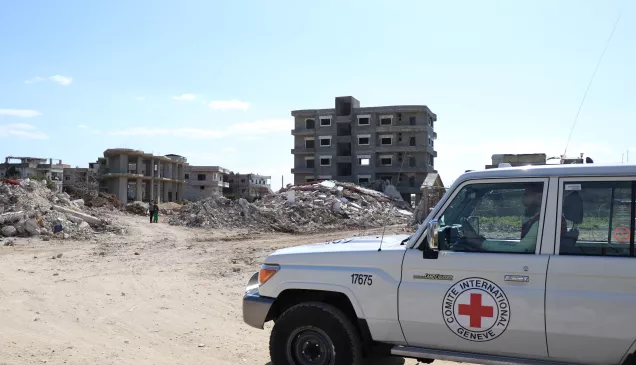A silent threat: In Papua New Guinea, the impact of COVID-19 on mental health
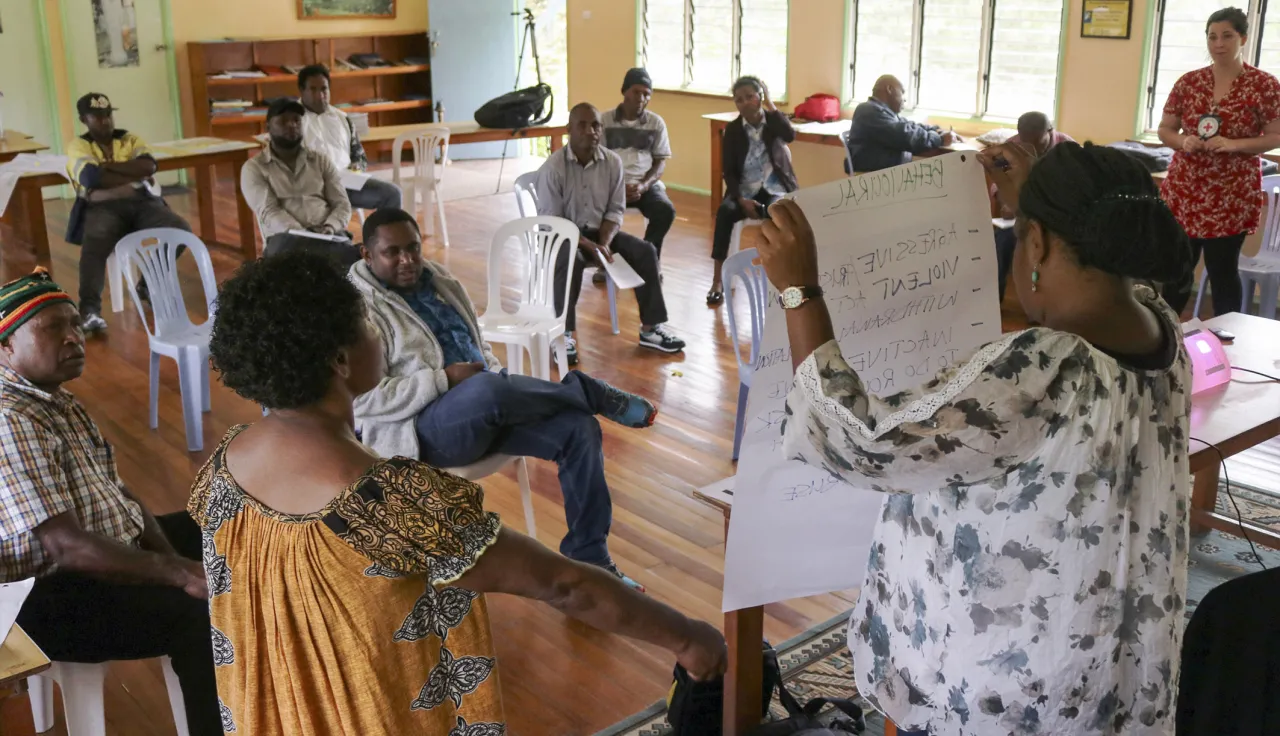
For 30 years now, Felix Soal has dedicated his life to patient care at the Mendi General Hospital in Southern Highlands, Papua New Guinea. During his long career in health care, Soal has seen many challenges that come with the territory – outbreaks of tribal fighting remain common in the highlands. But nothing comes close to what COVID-19 has unleashed around the world in recent months.
Trained to stay calm under pressure, Soal says the stress of dealing with an unknown virus at such a large scale has taken a toll on health-care workers, causing many to feel anxious, irritable and frustrated.

Felix Saol. CC BY-NC-ND/ICRC/R.TABEL
Addressing these mental health concerns among front-line responders, the International Committee of the Red Cross (ICRC) held four training workshops in various provinces to help close to 60 participants deal with the unprecedented situation. For many participants, this is the only exposure to awareness-raising about mental health that they've had.

ICRC Mental Health and Psychosocial Support Delegate Charlotte Blackman presenting signs of stress to participants during a two day workshop in Mendi. CC BY-NC-ND/ICRC/R.Tabel
As a participant at one of these workshops, Soal shares his fears that surfaced soon after the pandemic hit Papua New Guinea.
In the beginning, it was the fear of the unknown. I was worried about taking the virus home and infecting my family. Our relatives stopped visiting us as they were apprehensive too. I felt discriminated against.
This stigmatization has been one of the biggest stressors for many medical personnel, as was revealed from feedback after the workshop. An ICRC delegate and facilitator of the workshop, Charlotte Blackman, said,
In some cases, stigmatization was already an unfortunate reality for them – both from their families and communities. One participant said her husband told her 'not to come home' if she continued working in the hospital.
The sources of stress include fear of getting infected, fear of transmitting the disease to their loved ones, fear of stigmatization, the potential death of their colleagues or patients or the exhaustion of their work.
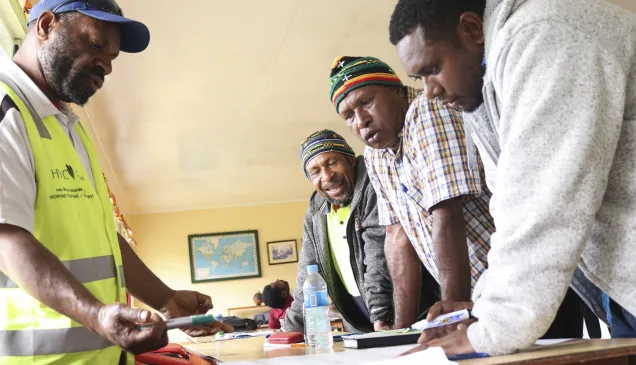
Felix Saol (middle) with his group members writing down their points after the discussion during the two-day workshop in Mendi for health workers.
Around the world, COVID-19 threatens both physical and mental health. In PNG, where health facilities can be remote and difficult to access, the pandemic only makes a tough situation worse. The pandemic brings uncertainty – the sudden or unexpected loss of lives, livelihoods – on top of the toll on communities left by tribal fighting. It all adds up. Anxiety, sadness, hopelessness, insomnia, fatigue, irritability and anger are just some of the ways the threat of pandemic can leave a mark on the mental health of communities.
To strengthen their coping tools, the participants were encouraged to follow only credible sources of information related to COVID-19 to avoid the anxiety that rumours could bring along. Blackman added,
We also taught them to identify any change in their emotional reactions, including uncertainty, fear and anxiety, denial and minimalization, hopelessness and helplessness, anger and aggression.
Admitting that adapting to 'the new normal' would take time, Soal says the methods and tips shared during the workshop would not only help health-care workers protect themselves and their families, but also avoid the stressors related to the pandemic.
The experts from Red Cross clarified my doubts about COVID-19 and reinforced the importance of staying physically and psychologically fit during these times. If we take adequate care, we can beat this.
According to Blackman, people with existing mental health conditions might experience an increase in psychological distress and that their trauma symptoms risk being aggravated during isolation.
Their treatment may be disrupted, and their careers could come under additional strain. We will continue to help the best way possible.
We are also working at the community level and using information aids like videos and other tools.
Across the highlands, the ICRC plans to continue coaching and supervising trained personnel to ensure they have the support they need.
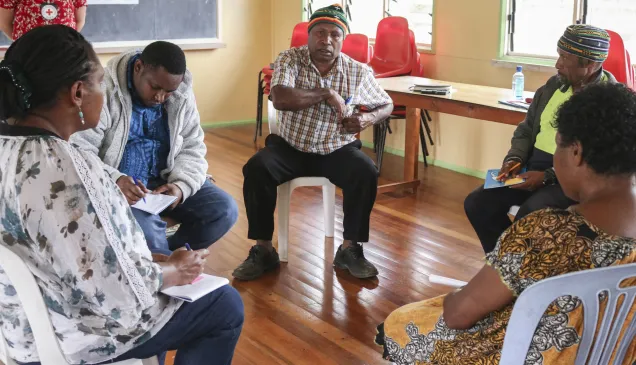
Felix Saol (middle) with his group members writing down their points after the discussion during the two-day workshop in Mendi for health workers.
Meanwhile, back at Mendi General Hospital, Soal emphasises the importance of a well-being plan and deep breathing techniques – handy during times of crisis like this one.
Peer support is critical, It will be challenging to practice social distancing, frequent washing of hands with soap and avoiding crowds when our ancestors have conducted all cultural activities without using such measures. But if we embrace the changes and support each other, we will make it to the other side.
I signed up to help our people, and I must do it.

